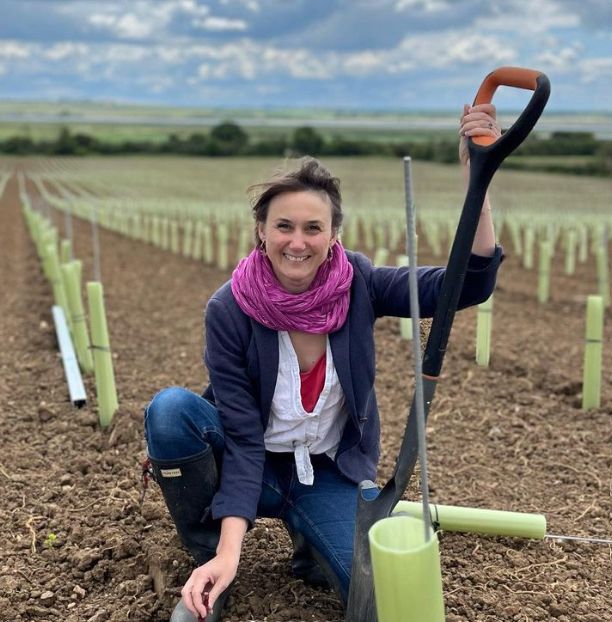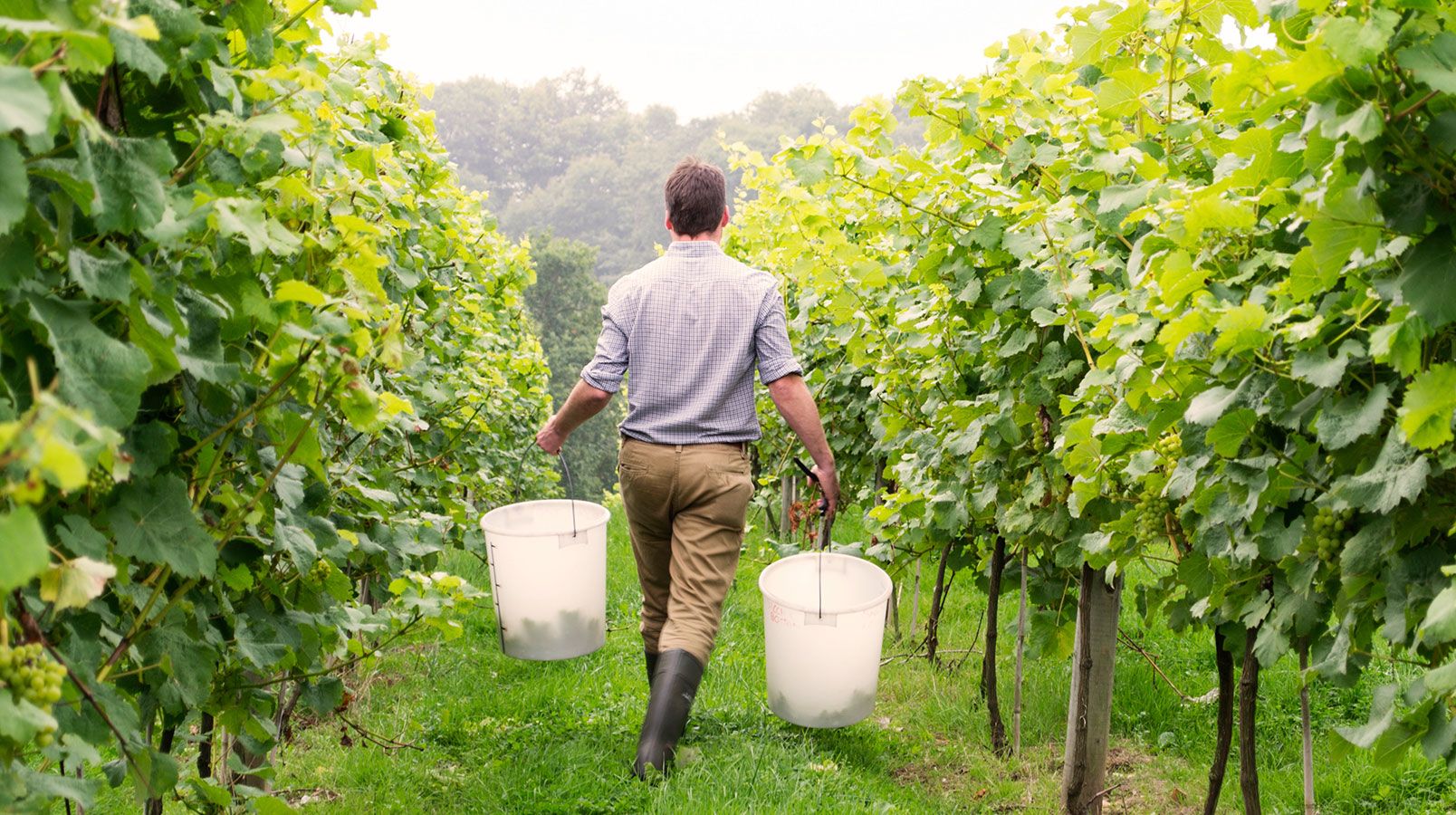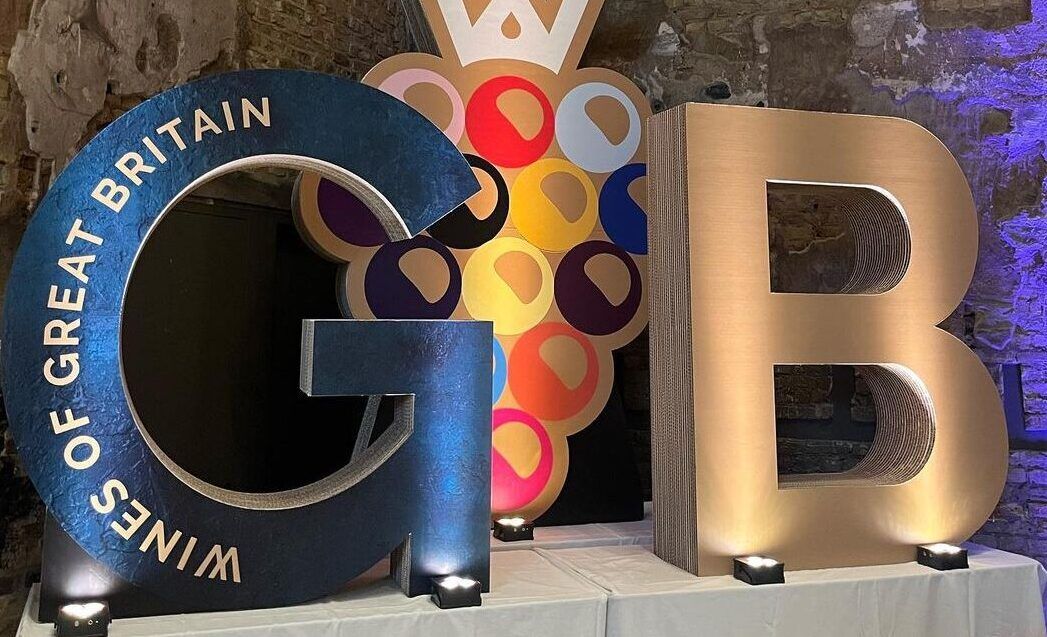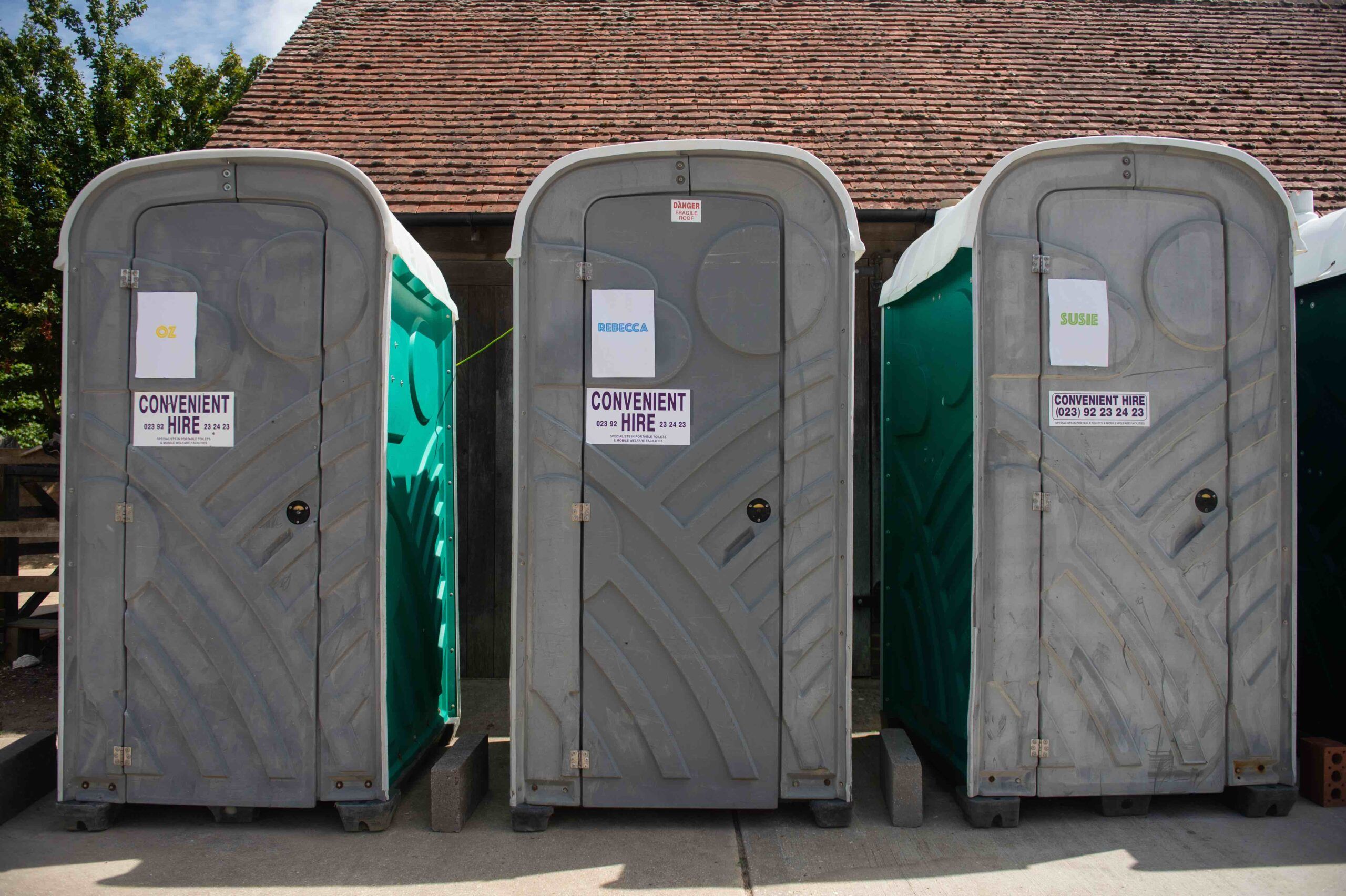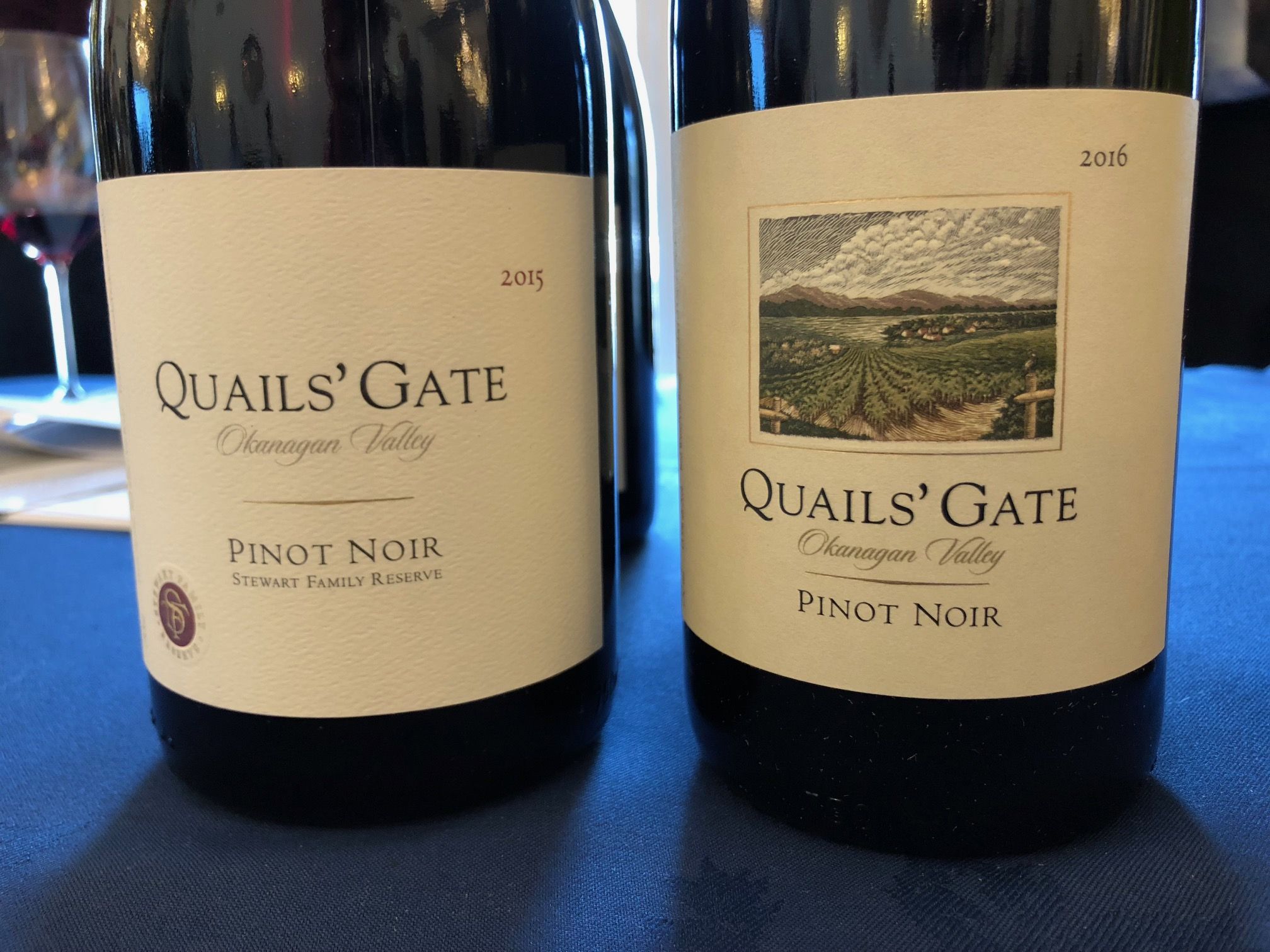The fact Nicola Bates has been able to achieve so much in such a relatively short period of time demonstrates what an impressive business leader she is. In fact it is hard to keep up with her rat-a-tat delivery style as she sets out the very clear, deliberate steps she, Wine GB and its members need to be taking if they are to achieve their ambition of making “Great Britain one of the world’s great quality and most sustainable wine regions”.
She says she is particularly excited to have joined WineGB at a crucial time in the overall direction of the UK wine industry. Whilst the headline figures all appear to be good news, particularly in terms of the huge surge in vineyards being planted (over 900) and big rise in the number of growers, winemakers and producers, including over 200 wineries, coming into the sector, there are also serious supply and demand issues that need to be addressed and dealt with.
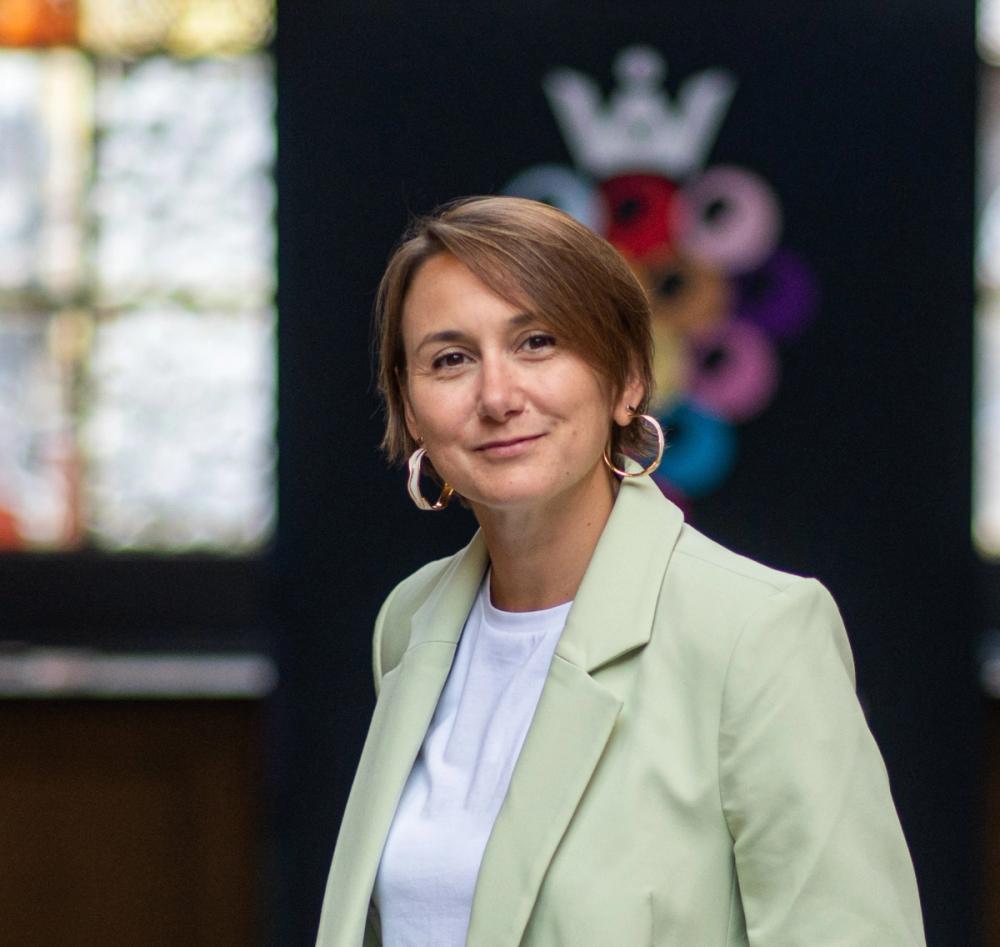
Nicola Bates has been quick to implement a far reaching strategy and "Manfesto" for the English wine industry as head of WineGB
There are few countries in the world that can match the level of growth we have seen in the English and Welsh wine industry over the last five years - a 75% increase in vineyard plantings between 2018 and 2022, making it the fastest growing agricultural sector in the UK. But then there are few that have also had to handle the huge variances there have been in production.
Back in 2017 there were 5.3 million bottles of English and Welsh wine produced. This jumped spectacularly to 13.1m in 2018 and then over the last six years has see-sawed between: 10.5m in 2019;8.8m in 2020; 8.9m in 2021; 12.2m in 2022; a record 21.6m in 2023; and what is expected to be between 6-7m bottles in 2024.
The supply and demand situation has been helped to some degree by the lower than average size of the 2024 vintage - which is some 30-40% down on the 10-year production average of 10m bottles.
But the record 30 tonnes of grapes harvested in 2023 is where WineGB predicts the industry "will be regularly cropping in five years’ time” on the back of a further 40% increase in planting of vines.
It’s an issue that is at the top of Bates’ in-tray: “Sales have to track production and we are about right in terms of where we need to be. The 2024 harvest is an outlier to the norm of 11 million, and given the reserves laid down in 2023, we are able to maintain a consistent supply, which supports retailers faith and therefore sales.”
It’s also why WineGB is particularly keen to push the new major investments into quality Charmat, driven by MDCV UK, and what she sees as the chance to “open up” English wine to more consumers.
“If we can take just 1% of Prosecco sales that will be significant,” she says.
Manifesto for growth
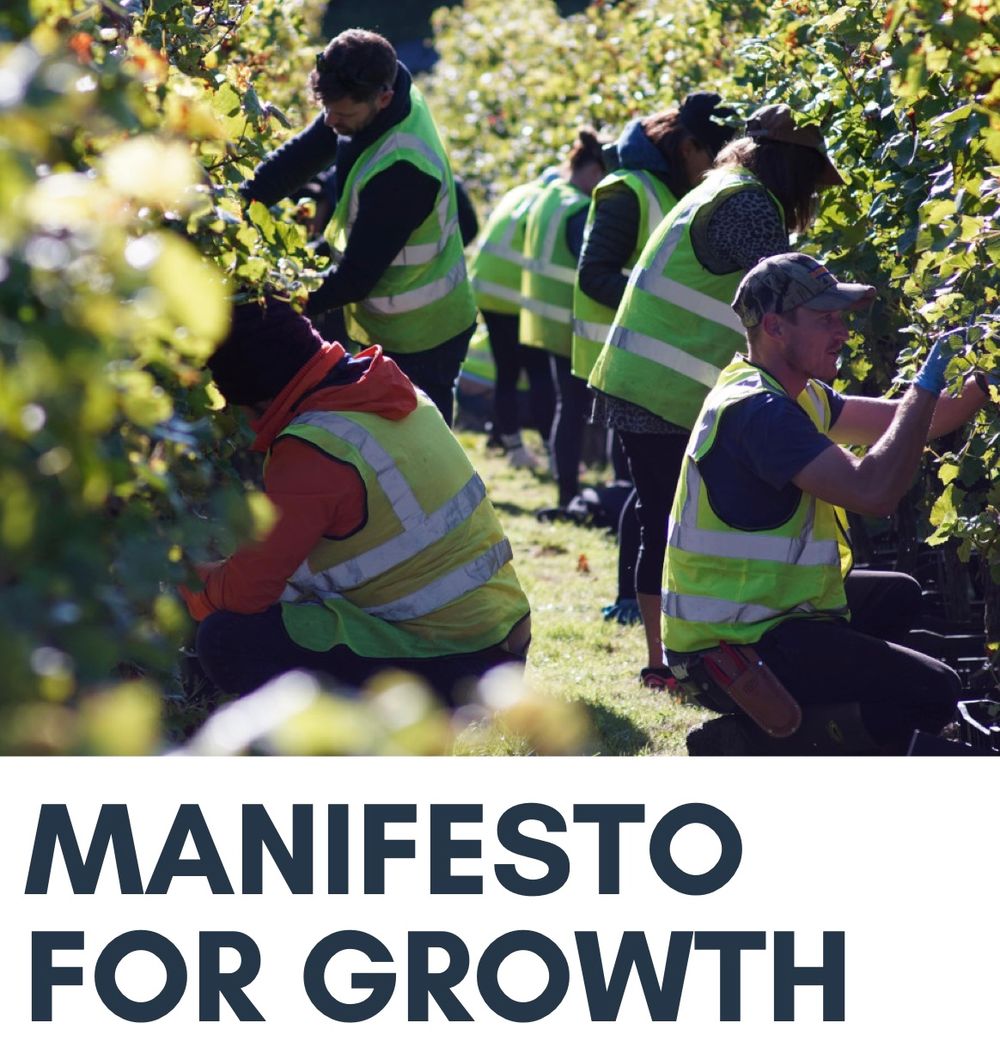
WineGB's Manifesto for Growth sets out its ambitions and targets for its members and the wider UK wine industry
Which is why Bates, WineGB team and its members, have set out their combined vision in a new “Manifesto for Growth” that explains the challenges the sector faces, and the changes it needs to make in order to not just get over them, but shape and create a new future for the industry.
She says that even though it enjoyed its record harvest in 2023 “there were significant infrastructure constraints” that meant as an industry it could not “maximise the value from all of our grapes”.
As its manifesto says: “We must act now to ensure that the right investments occur, opportunities are taken, and regulatory blocks removed to support this new sustainable industry.”
As a trade association WineGB itself, she stresses, needed to go through “transformational change” in order to be in a position to help the industry “take that step up”. To get out of a one year cycle and put in a place a “road map” that everyone can follow.
To bring structure and make sure it is making the most of the skills, talent and experience within its members by introducing a number of new people to its board and setting up separate working groups of members to tackle key areas of growth and development. These include focused 10-strong groups on areas such as research and development, education and training, winemaking and viticulture, productivity, services, tourism and sales and marketing.
To ensure it was doing what its members most wanted it to do, WineGB carried out two comprehensive surveys of members to “see what was most needed”.
All of which culminated in a strategy day last year where the separate working groups were able to “knit everything together into a collective programme” that everyone could sign up to and stick to.
A members’ driven strategy that hopefully now helps them make the right levels of investment in their “workforce, production infrastructure, marketing, and distribution,” she explains. But she is also quick to stress that with such a diverse membership, particularly in the size and scale of the operations involved, it hard to find consensus that covers everyone.
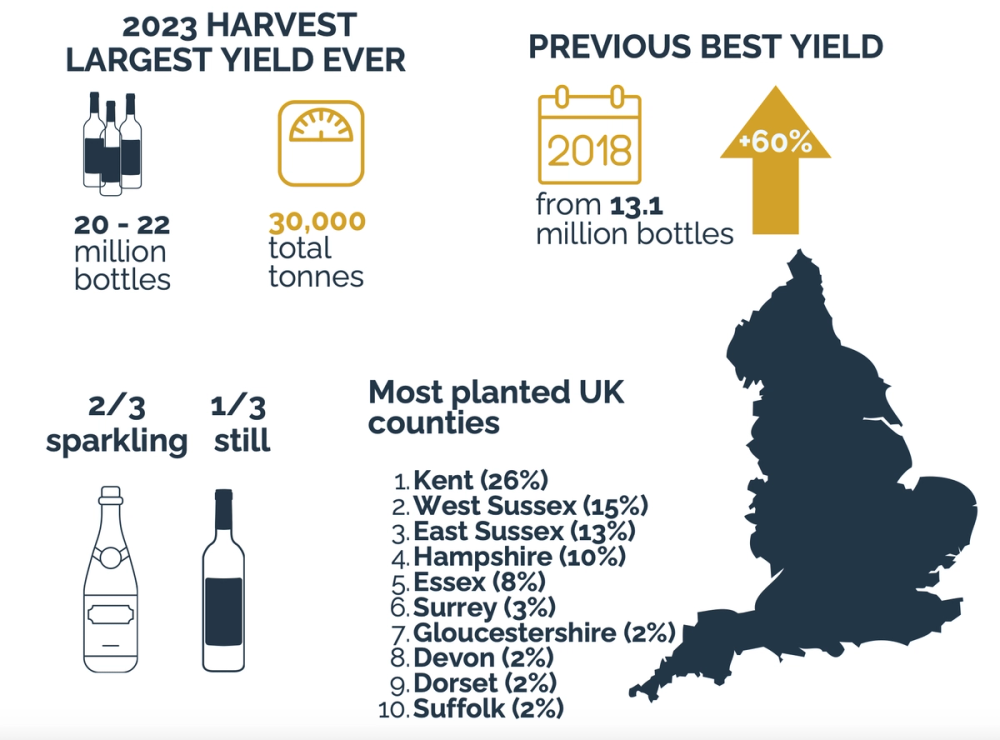
What WineGB can do, in turn, is provide the leadership, create the frameworks, devise and implement a strategy that will help push and raise awareness of all its members’ wines, she adds.
Fundamental to its “manifesto” being a success is getting and maintaining concentrated government support.
Bates says the English and Wales wine sector currently faces levels of “regulation, excise duty, and production costs” that its competitors around the world do not have to deal with. All of which are putting it on the back foot compared to what are extremely mature markets with global export wine markets.
To do that it needs much more government support across these core areas:
Domestic market
- reduce or eliminate uncompetitive domestic regulation and production costs.
- scrap the new “unworkable” ABV-driven alcohol duty system.
- reduce duty for wine and support what are home-grown and produced products.
- reform Small Producer Relief so that more English and Welsh producers can benefit.
Tourism

To introduce a cellar door duty relief scheme for British wine producers modelled on similar Australian scheme.
- reduce VAT rates for tourism.
- restore tax-free shopping for visitors to the UK.
- improve links and support from tourism bodies such as VisitEngland, Local Visitor Economy Partners and other local and regional tourism bodies.
NB: Currently there are 300 vineyards and wineries open to visitors attracting over 1m visitors a yearly.
NB: 10% of visits are from international tourists even though 40% of visitors say they would be interested in going to a winery.
Export

- showcase English and Welsh wine in 20-30 capital and major cities across the globe with a real focus on its top 10 markets.
- improve grant funding, export financing, and help with taking part in overseas events.
- improve trade access to nearest and closest markets in Europe.
- forge closer ties with UK’s global embassy network and with public bodies.
- provide access to more accurate and up-to-date export data.
NB: Exports of English and Welsh wine currently sit at around 7-8% of production, up from 4% in 2021 and are in 30 markets around the world of which 80% are for sparkling wines.
Environment and sustainability
As well as continuing to promote and grow its own Sustainable Wines of Great Britain certification programme it is calling on government support to:
- give viticulture access to same sustainability financial assistance and grants as other agricultural sectors.
- right policies and frameworks to allow wineries and cellar doors to be built.
- forge closer ties with local planning teams that can see the opportunity in winemaking operations.
Political know-how
Bates is well placed to get the government support the sector needs having spent over seven years walking the corridors of Westminster and the House of Commons whilst helping toimplement the strategy for the Portman Group, the drinks industry’s regulatory body, where she was in close contact with all the major drinks companies and relevant government departments.
She appreciates she is more like a “gamekeeper turned poacher” in her new role helping to manage, promote and drive the UK wine industry forward.
“My first job in the role was to have an experienced policy person in place,” says Bates, who was surprised to find that previously all government lobbying was left to the chief executive. “You need to have someone who is there in the game, as it were, all the time. That’s what gets you in the room. We have to make sure we have the right people in the right place.”

WineGB's 2024 annual tasting at Battersea Arts Centre
She turned to Vincent McGovern’s to fill a new role as policy director, tasked with representing WineGB with the government. He joins WineGB after extensive similar roles at Drinks Ireland, the World Spirits Alliance and Spirits Europe.
Which means ensuring WineGB has close ties with all the relevant government bodies and is also working alongside the Wine & Spirit Trade Association, UK Hospitality and other trade bodies so that they are “aligned” on what they are calling for.
“We have to make it compelling to the government to listen to us. We need to understand their priorities and what motivates them,” Bates explains.
The industry, for example, should not give up the fight against the new duty system, she argues, as the government will need to review if it works or not and the sector needs to be there continuously making the argument against.
Other areas where WineGB will be lobbying the government on include:
- tightening up labelling rules so only genuine English and Welsh wines, produced using UK sourced grapes, can describe themselves as English, Welsh, or British wine; and that the UK production does not appear as part of the branding and description of the product.
- resist proposals to favour third country wine dumping and allow bulk wine to be transformed, sweetened, or carbonated in the UK.
- protect ‘Traditional Method’ of and ‘Chamat’ methods of producing sparkling wine.
- ensure that any changes to wine regulations in the UK do not mislead consumers. This means that the grapes’ origin is referenced on the label; UK and British symbols, flags and references cannot be used in any circumstances;
People driven

Coming together for the WineGB Awards event
Another of its principle goals is to not only grow the number of people working in the English and Welsh wine industry, but give them their opportunities to develop and become part of not just a new viticulture and winemaking community, but also open to wide range of skills from chemists and engineers to computer scientists, data analysts, marketers and tourism experts. A sector it believes could employ up to 30,000 people by 2040, compared to 2,300 today. That is some jump.
Crucially WineGB has had a diversity and inclusion working group set up since 2020 and has now established its own D&I Charter to offer diversity guidance for members and to ensure this new workforce can be seen as a “leading example of an inclusive industry”. A chance to build on what is already a 50 to 50 gender split.
“If we want to have the best people coming into the sector then we need to look after them,” says Bates, particularly if is to achieve its goal of expanding its workforce by as much as three times in the next three years. “We need to be more diverse and appealing.”
It has created a hub on its website that offers comprehensive advice and full guidance on areas such as safeguarding and welfare; how to prevent sexual harassment in the workplace; risk assessment and other areas of staff well-being and support.
It is an area of employment and recruitment that Bates is very familiar with during her time working at Ellwood Atfield, a leading head-hunting and executive recruitment agency.
“We need to listen, develop and value our people,” she says. “We need to build upwards from a solid foundation. We also need to deliver value for our members over the next few years. It means we need to be more embedded in people’s strategies.
Again it is looking to lobby and work with the government to ensure it can achieve this seismic jump. It is calling for:
- continue the £1.5 million ‘Future Winemakers’ Scheme’ and provide regular education and training support and identify future skills gaps.
- widen the visa system to give more opportunities to visiting winemakers and viticulturists and access to more seasonal labour.
Strong team
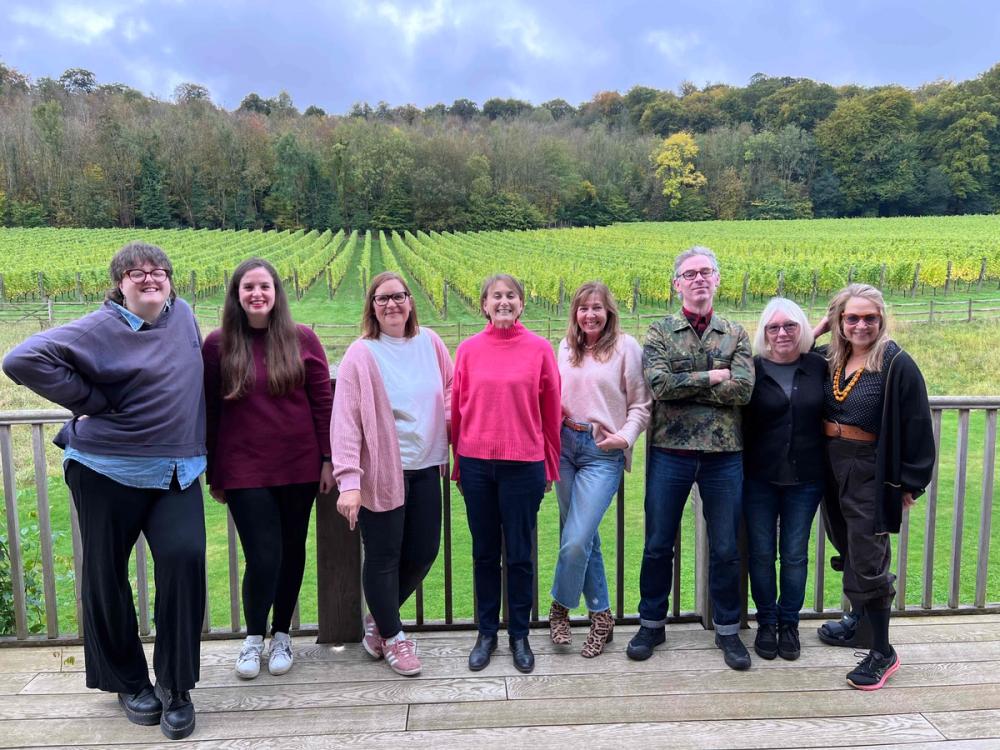
The WineGB team...here to help members and their businesses
Bates has also looked to strengthen WineGB’s own team over the last year with some key strategic hires in order to bring “experienced expertise” into the organisation. This includes a new knowledge manager, Gillian Jordan, to help co-ordinate and drill down into all the viticultural and production data within the sector to help provide members with the right materials they need.
Talya Roberson has been brought in as head of industry relations, another “highly strategic” new role to help introduce and promote WineGB to the right people.
Former Drinks Business journalist, Phoebe French, was also appointed to head up WineGB’s national, consumer and trade press coverage as communications manager as well as co-ordinating and managing reports and content for its members.
“I have got a really good team together who all have the autonomy to make the changes they need,” stresses Bates.
More resources
Bates immediate goal in 2025 is to continue to implement the big steps taken last year. She is also focused on bringing in more corporate support through its partners, patrons and sponsors that together help it invest in the right growth areas and support more of its members.
“We need to grow the resources that are coming into the organisation,” she adds, pointing to the work being done more locally through the working groups to bring in more members, mindful of the fact there are still 20% of vineyard owners who are not WineGB members.
Which will see a new rebranded, and upgraded website to include far more online resources and data for its members and the wide trade and media to use.
“We want to showcase the heart of WineGB and what we can offer,” says Bates.
With Bates at the helm it now has the leadership, the vision and the drive to take WineGB and the industry it serves to the next level.
* You can find out more about WineGB at its website here.
